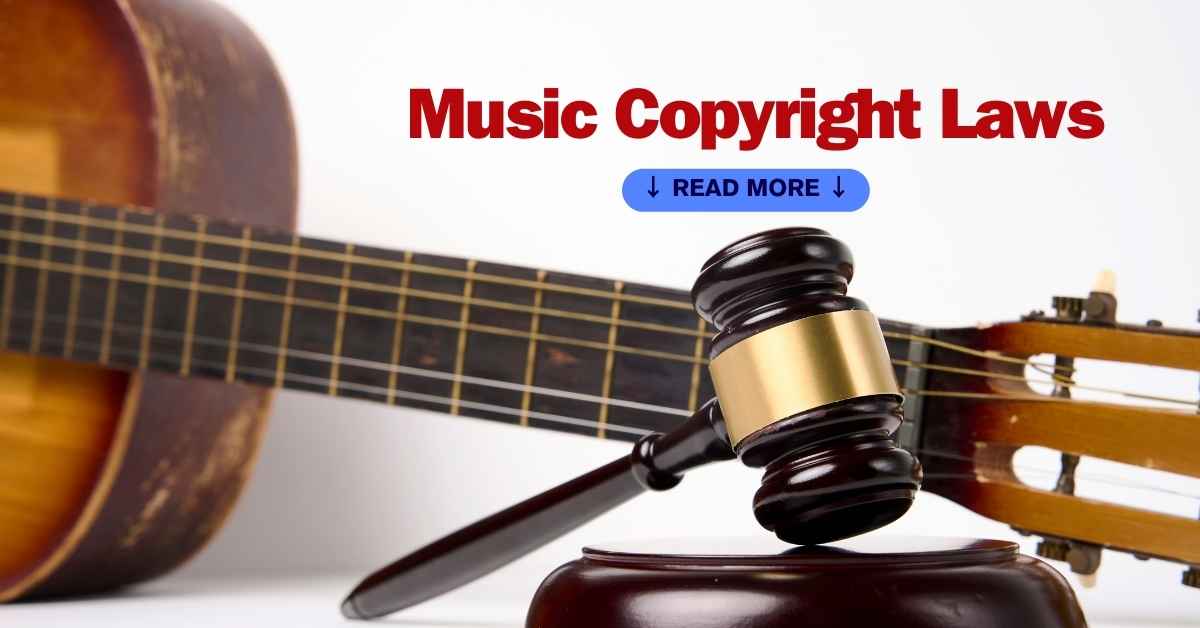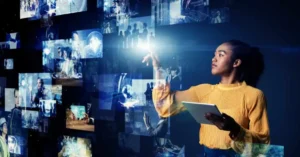According to Statista, Indonesia’s digital music market is projected to reach US$363.30 million in 2024. So, understanding the music copyright laws is crucial for every musician, given the immense economic potential of the global music industry in Indonesia.
As a leading IP law firm in Indonesia, our legal team at Am Badar & Am Badar understands the intricacies of the music industry’s copyright laws and has extensive experience assisting international clients in this field.
Therefore, this article will give you a comprehensive overview of copyright laws for music in Indonesia. But before that, you may also want to read our insights about “Music Copyright Laws: Performing Rights and How to Register”, or check the service page and contact the team.
Understanding Music Copyrights in Indonesia
The Indonesian Copyright Laws refers to Law No. 28 of 2014 on Copyright, and is regulated by the Directorate General of Intellectual Property of the Republic of Indonesia (DGIP).
Article 1, paragraph 1 of this law defines copyright as an exclusive right granted to creators that automatically arises from the creation of a tangible work, following the declarative principle, without prejudice to statutory restrictions.
This means music copyright in Indonesia grants exclusive rights to the creators of musical works. Under this Law No. 28 of 2014, the scope of musical works protected includes:
- Lyrics, as words related to music;
- Original musical compositions, as works in the form of melody, harmony, and rhythm;
- Sound recordings, as works that capture performances.
Copyright Ownership and Rights
In the context of a musical work, copyright ownership can belong to several parties depending on their contributions. The composer, who creates the melody, and the lyricist, who writes the lyrics, are typically the primary copyright owners.
According to Indonesian law, these individuals hold the copyright automatically once their work is fixed in a tangible form. This automatic ownership is stated in Article 1 of the Indonesian Copyright Law.
Additionally, performers, such as singers or instrumentalists, and record producers who create the phonogram can hold related rights.
These rights are also protected under the law and ensure that each party involved in the creation of the musical work receives proper recognition and compensation. Articles 4, 18, and 30 provide specific details on these rights for the protection of creative works.
Furthermore, in Indonesian music copyright laws, copyright holders are granted several exclusive rights that enable them to control and benefit economically from their works. These rights include:
-
Reproduction Rights
Reproduction rights allow copyright holders to make copies of their musical work. This includes copying the work onto various formats such as CDs, vinyl, and digital files.
-
Public Performance Rights
These rights give the copyright owner the authority to perform their music publicly. This can be through live performances, radio broadcasts, or playing music in public venues like restaurants and cafes.
-
Adaptation Rights
Meanwhile, adaptation rights enable the copyright holder to modify their work or create derivative works. This includes activities such as making remixes, adaptations, or new arrangements of the original piece.
To help you understand more about the differences between related economic rights, here are more details according to a study about Indonesian music copyright laws:
| Type of Economic Right | Description |
| Reproduction Rights | Exclusive right to make copies of the copyrighted work. |
| Distribution Rights | Exclusive right to sell or distribute copies of the work to others. |
| Publication Rights | Exclusive right to publish the work and make it available to the public. |
| Rental Rights | Exclusive right to allow others to rent the copyrighted work. |
| Public Performance Rights | Exclusive right to perform or display the work in public. |
| Adaptation or Modification Rights | Exclusive right to modify or adapt the work to create new works. |
Understanding the differences between these rights is crucial to prevent potential issues like disputes or infringement. One notable example of copyright issues in the Indonesian music industry is the case of the band Dewa 19 and their former vocalist Once Mekel.
Ahmad Dhani, representing Dewa 19, prohibited Once Mekel from performing their songs without proper royalties.
On the other hand, Once had performed Dewa 19’s songs at commercial concerts without paying royalties, which led to a legal dispute highlighting the importance of respecting music copyright laws and ensuring proper compensation for creators.
The Indonesian Music Ecosystem and Licensing
Now that you understand how the music copyrights in Indonesia work, let’s explore more details on the Indonesian music ecosystem and licensing.
-
Key Players in the Music Industry
In general, key players in the Indonesian music landscape is similar with the global music industry, such as:
-
Composer:
Responsible for creating musical compositions, ranging from instrumental and vocal arrangements to full orchestral pieces. They develop music from scratch.
-
Songwriter:
Create lyrics and melodies, often specializing in specific genres. They may work solo or collaborate with other musicians.
-
Performers and Music Recorders:
Handle the mixing, recording, and technical aspects of music production. They ensure the audio quality is at its best.
-
Music Publishers:
Provide A&R (Artists and Repertoire) services, marketing, synchronization licensing, and music promotion.
-
Record Labels:
Discover and nurture talented musicians. They provide financial support for marketing and distributing musical works.
-
Collective Management Organizations (CMOs):
Manage music rights, usually comprising legal experts who navigate complex copyright laws. They help prevent music piracy in accordance with music copyright laws.
-
Copyright Licensing for Music Use
Using copyrighted music in various contexts requires appropriate licensing. These contexts include:
- Public performances: such as concerts and radio broadcasts;
- Streaming platforms: including Apple Music, YouTube Music, Spotify, etc;
- Synchronization licenses: for using music in TV shows or films.
Article 9, paragraph 3 of the Copyright Law regulates the reproduction of musical works. It is prohibited to duplicate or commercially use the works of copyright holders without their permission.
Thus, clear licensing involving the music copyright holders is essential before using music in these contexts. Here are the flow charts to register your music copyright license in Indonesia:
(this flow chart is created manually according to https://kemenparekraf.go.id/en/articles/the-importance-of-music-copyright-for-musicians-heres-how-to-register-it)
Collaborative Advantage with Am Badar & Am Badar
Am Badar & Am Badar can assist in navigating the laws related to the music copyright act for international clients. Our advantages include:
-
In-depth knowledge of the Music Industry and Legal Landscape
Our music copyright laws specialists understand the complexities of music copyright, making regulatory navigation more effective.
-
Strategic Licensing and Rights Management
We develop comprehensive licensing strategies and manage music rights across regions, facilitating easier management processes according to the music copyright act.
-
Effective Communication and Negotiation
We bridge communication gaps between international clients and Indonesian rights holders or CMOs, making negotiations more efficient and practical.
Am Badar & Am Badar Attorneys: Your Indonesian Music Industry Partner
For professionals in the music industry and IP companies, Am Badar & Am Badar’s team offers specialized copyright services related to music copyrights. Our services include:
- Registering music copyrights and managing portfolios;
- Drafting and negotiating music license agreements for various needs;
- Investigating copyright infringements and taking legal action;
- Representing clients in disputes over music copyright violations;
- Providing legal advice on royalty collection with Indonesian CMOs.
Explore our full range of services here, or contact us directly for consultation. Also, don’t forget to check out more insights related to music copyright laws, such as “Everything You Need to Know about Music Copyright”.
References
- https://kemenparekraf.go.id/en/articles/the-importance-of-music-copyright-for-musicians-heres-how-to-register-it
- https://wipolex-res.wipo.int/edocs/lexdocs/laws/en/id/id064en.pdf
- https://ejournal.balitbangham.go.id/index.php/dejure/article/view/1713/pdf
- https://fourthavenew.net/the-music-industry-key-players/
- https://journal.upy.ac.id/index.php/pkn/article/download/5590/3292/15587.
Reviewed by Nabil Argya Yusuf




